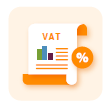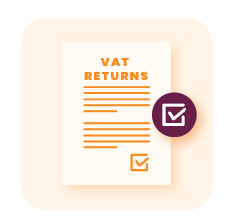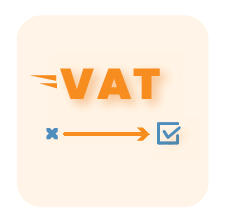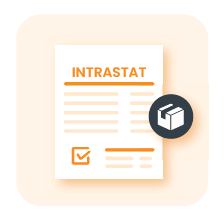Reverse Charge / Split Payment & “Call Off Stock” in Poland
The reverse charge mechanism is applicable to specific domestic supplies of goods and services. Under this system, the seller issues invoices without adding VAT, and the responsibility of accounting for VAT shifts to the buyer.
The buyer then settles the transaction and reports both output and input VAT on their purchase invoices. However, in Poland, this mechanism is primarily relevant for transactions between Poland and other countries. For domestic transactions within Poland, the reverse charge mechanism has been replaced by the split payment mechanism.
Selling in Poland?
Poland – “Call off stock”
In simple terms, “call-off stock” refers to a situation where a supplier sends goods to be stored in a third-party warehouse in another EU Member State. In contrast, “consignment stock” occurs when a supplier stores their goods in a warehouse they own in another Member State. The key distinction lies in who controls access to and uses the stock, which in turn affects the point of VAT liability and the compliance requirements.
For consignment stock transactions between two EU countries, the supplier traditionally needed to register for VAT in the customer’s country. However, until 2020, many countries adopted a simplification to prevent this need for VAT registration. The concept of call-off stock has been introduced to replace consignment stock, bringing clearer terminology to help foreign entrepreneurs understand the basic principles of stock operations and the differences between these two methods.
To be eligible for the call-off stock simplification, certain criteria must be fulfilled:
- Both the supplier and the customer must be taxable entities with valid VAT identification numbers.
- The supplier should not have any fixed establishments in the client’s country.
- The supplier needs to know the client’s identity.
- The supplier must maintain records of the goods’ movement and report this in an ECSL (European Community Sales List) return. Depending on the volume, the supplier might also need to fulfill Intrastat obligations.
- The goods should not remain in the client’s warehouse for more than 12 months.
Last Updated: 25/01/2022
Disclaimer
The information provided by Global VAT Compliance B.V. on this webpage is intended for general informational purposes only. Global VAT Compliance B.V. is not responsible for the accuracy of the information on these pages, and cannot be held liable for claims or losses deriving from the use of this information. If you wish to receive VAT related information please contact our experts at support@gvc.tax
Poland – “Import VAT”
Goods imported into Poland are subject to Value Added Tax (VAT), and this includes items that are duty-free or have partial or full duty suspension, as well as goods qualifying for preferential, reduced, or zero duty rates.
Traditionally, businesses had to pay VAT at the time of importation and could only claim a deduction for this VAT after submitting their VAT return. However, starting from 1 July 2020, Poland has implemented a deferred import VAT accounting system. This system allows VAT-registered businesses in Poland to delay the payment of VAT at the point of importation. The VAT amount is then accounted for in the subsequent VAT return, effectively neutralizing any immediate cash flow impact.
The customs authorities need to be informed of the import VAT liability within 10 days. The introduction of postponed import VAT accounting is a major simplification aimed at improving cash flow for businesses engaging in import activities.
Last Updated: 11/01/2024
Disclaimer
The information provided by Global VAT Compliance B.V. on this webpage is intended for general informational purposes only. Global VAT Compliance B.V. is not responsible for the accuracy of the information on these pages, and cannot be held liable for claims or losses deriving from the use of this information. If you wish to receive VAT related information please contact our experts at support@gvc.tax








